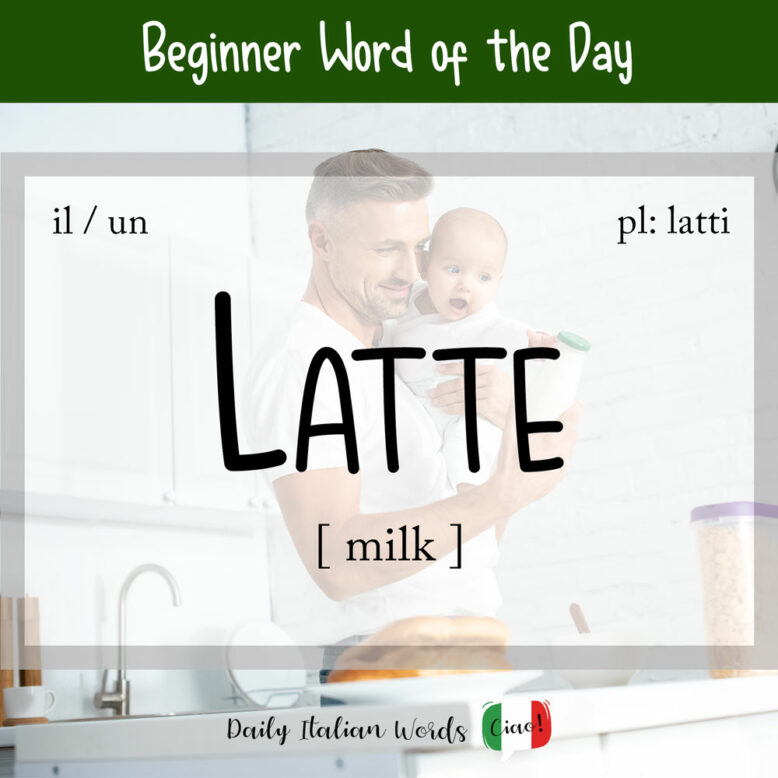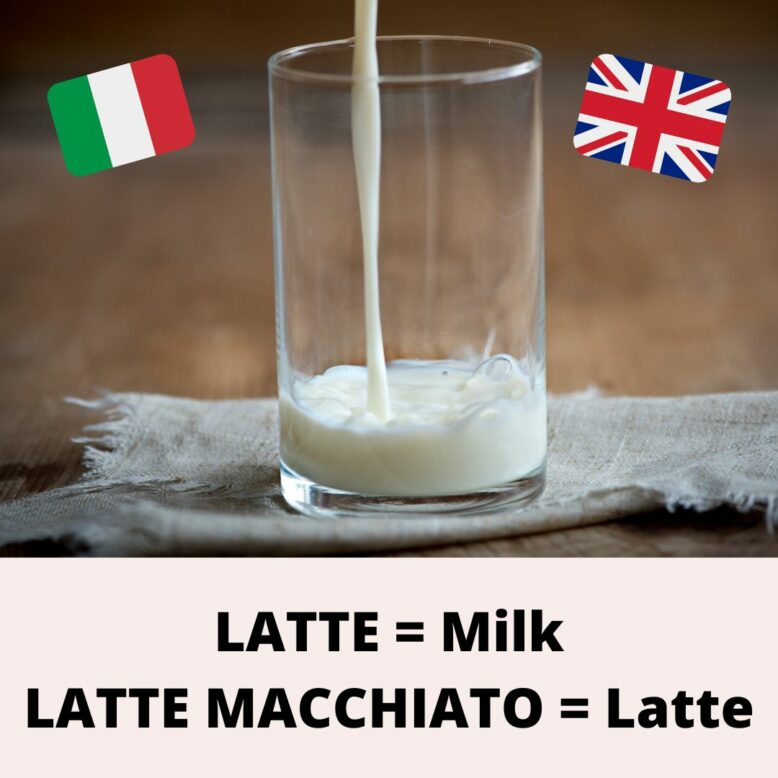The word for milk in Italian is latte (masculine, plural: latti).

An easy way to remember this word is to think of the English term lactose or the popular hot drink available at most cafés (latte or caffè latte). But before you go ordering a latte in Italy, it is important to remember that a latte as we know it in English is actually called a latte macchiato in Italian. If all you say is latte, the bartender may think that you’re asking for a glass of milk (un bicchiere di latte) instead!
Posso avere un latte macchiato per favore?
Can I have a latte, please?

Some of the most common terms containing latte include:
- latte magro = skimmed milk
- latte scremato = low-fat / skimmed milk
- latte intero = whole milk
- latte parzialmente scremato = semi-skimmed milk
- latte condensato = condensed milk
- latte in polvere = powdered milk
- latte artificiale = formula milk
- latte di mucca = dairy milk, cow milk
- latte di capra = goat milk
- latte materno = breast milk
- latte al cioccolato = chocolate milk
Il latte contiene quantità significative di vitamine.
Milk contains a significant quantity of vitamins.

Just as in English, latte can be used to describe different kinds of milk that doesn’t necessarily come from animals, such as latte di mandorle (almond milk), latte di cocco (coconut milk) and latte di soia (soy milk).
Anything that has a white and creamy appearance, such as a person’s skin, can be described as latteo whereas a substance that is milky in colour and consistency would be referred to as lattiginoso.
Se spremete un pezzo di patata fra le dita, vedrete fuoriuscire un liquido lattiginoso.
If you squash a piece of potato between your fingers, you’ll see a milky liquid emerge.
This word also translates as dairy as you can see from the examples below:
- latticini = food group, relating to milk products
- lattiero (adj.) = relating to dairy farms, the production and commerce of milk
- latteria = dairy shop
A popular idiom in Italian is avere ancora il latte alla bocca which translates as to still have milk in one’s mouth. It is used to describe someone who is young and inexperienced.
A second idiom that also exists in English is piangere sul latte versato meaning to cry over spilled milk.
Heather Broster is a graduate with honours in linguistics from the University of Western Ontario. She is an aspiring polyglot, proficient in English and Italian, as well as Japanese, Welsh, and French to varying degrees of fluency. Originally from Toronto, Heather has resided in various countries, notably Italy for a period of six years. Her primary focus lies in the fields of language acquisition, education, and bilingual instruction.


